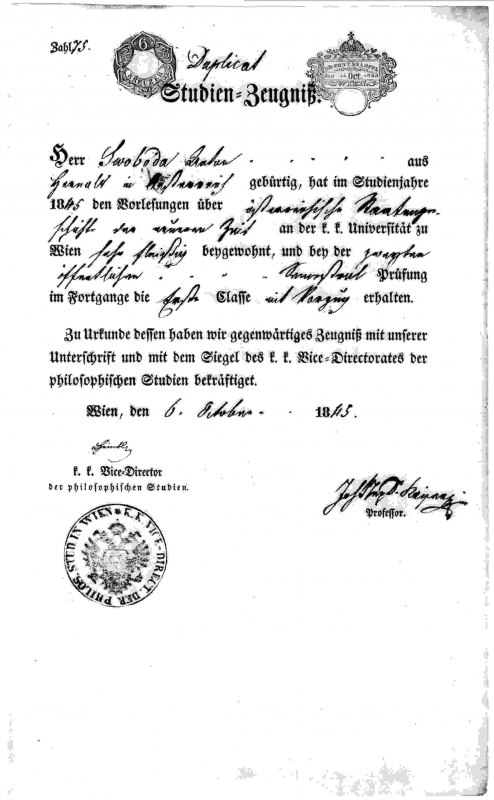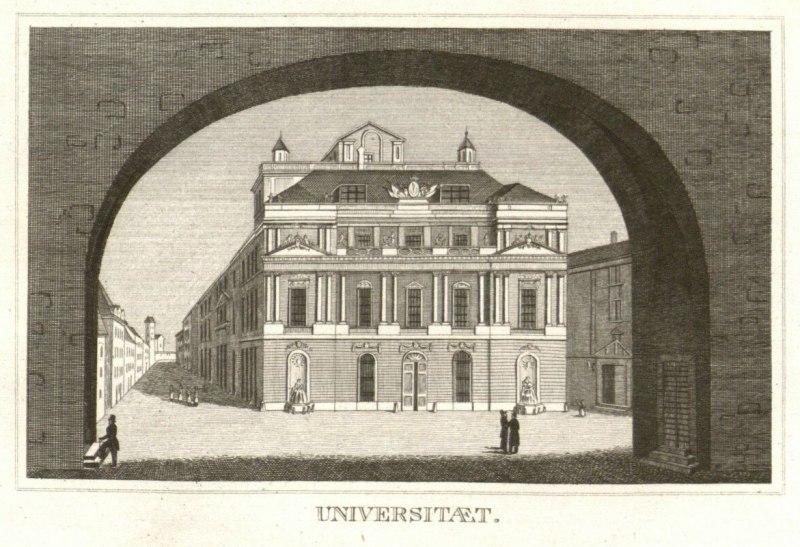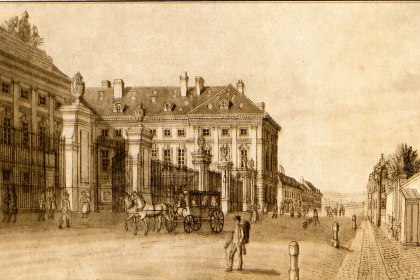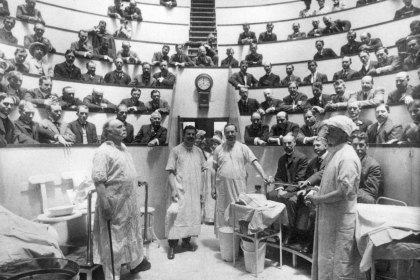The university as „Hohe Schule“
The police state under Metternich, characterized by the persecution of liberals, censorship and repression of freedom of press, speech and assembly, did not allow academic freedoms to develop.
The Austrian university system of the Vormärz (pre-March era) was based on the educational reforms from the time of Maria Theresia and her son Joseph II. Important innovations were the nationalization of the formerly independent universities as well as the orientation of academic studies towards being useful for and applicable to functions of the state. State oversight under the banner of late Enlightenment and Josephinism took the place of clerical Jesuit dominance. The “hohe Schulen” (literally “high schools”; universities) were no longer treated as corporations, but as “organizations of the state”. They had the purpose of training officials, advocates, doctors and clerics etc. Scientific research and innovation were not part of their responsibilities. Added to this were strict supervision of the teaching by governmental study directors and the restriction of the curricula to approved textbooks and scripts. The students had to pass an obligatory two-year “Cursus philosophicus” at the Faculty of Philosophy as a remedial course in order to then study at one of the three “higher faculties”: theology (3 years), law (4 years) or medicine (5 years). The tough exams (Rigorosen) were held under the supervision of state-appointed study directors. Professors were excluded from academic functions and only had teaching duties.
The authorities’ fear of freedom of teaching and learning
The great successes the German reform universities such as Halle, Göttingen, or Jena had achieved under the banner of freedom of teaching and learning, and through focusing on scientific qualifications of their teaching staff, were recognized in the Habsburg monarchy. However, similar liberal reforms were not carried out here. The foundation of an Academy of Sciences as a breeding ground for innovative research also only remained an often mentioned, but unrealized plan until 1847. Scientific research thus stayed restricted to the medical clinics (General Hospital) and the court institutes (collections, museums, libraries, archives).
Isolation against international development
The police state under Metternich, characterized by the persecution of liberals, censorship and repression of freedom of press, speech and assembly, did not allow academic freedoms to develop. Austria’s educational system remained conservative, informed by Catholicism, and isolated from foreign contacts. It was forbidden to study at foreign universities. Generations of professors were drafted from studied encyclopaedists, who had no knowledge of scientific research. Because of this development, the university’s teachings lost connection with intellectual Europe. Thun’s advisor Karl Ernst Jarcke said in this regard: “The spirit of science had taken leave from the country’s universities, and since time immemorial no Austrian professor had had a German, let alone a European name”. Cautious attempts made after 1800 to modernize the outdated studies and to establish “free lectures” alongside the obligatory ones changed little about the universities’ backwardness. The school-like study system with roll calls, the hated collegial, semestral and annual exams and the obligatory participation in academic church services remained in effect.
These restrictions would finally be lifted as a result of the revolutionary movement in 1848.
-

Studienzeugnis aus dem Jahr 1845
Studienzeugnis (Duplikat) für Anton Swoboda aus Hernals über den Besuch der Vorlesung "Österreichische Staatengeschichte in neuerer Zeit" und über...
Zuletzt aktualisiert am 04/15/24
-
Maria Theresia von Österreich (Habsburg)
13.5.1717–29.11.1780 -
Joseph II. von Österreich (Habsburg-Lothringen)
13.3.1741–20.2.1790





